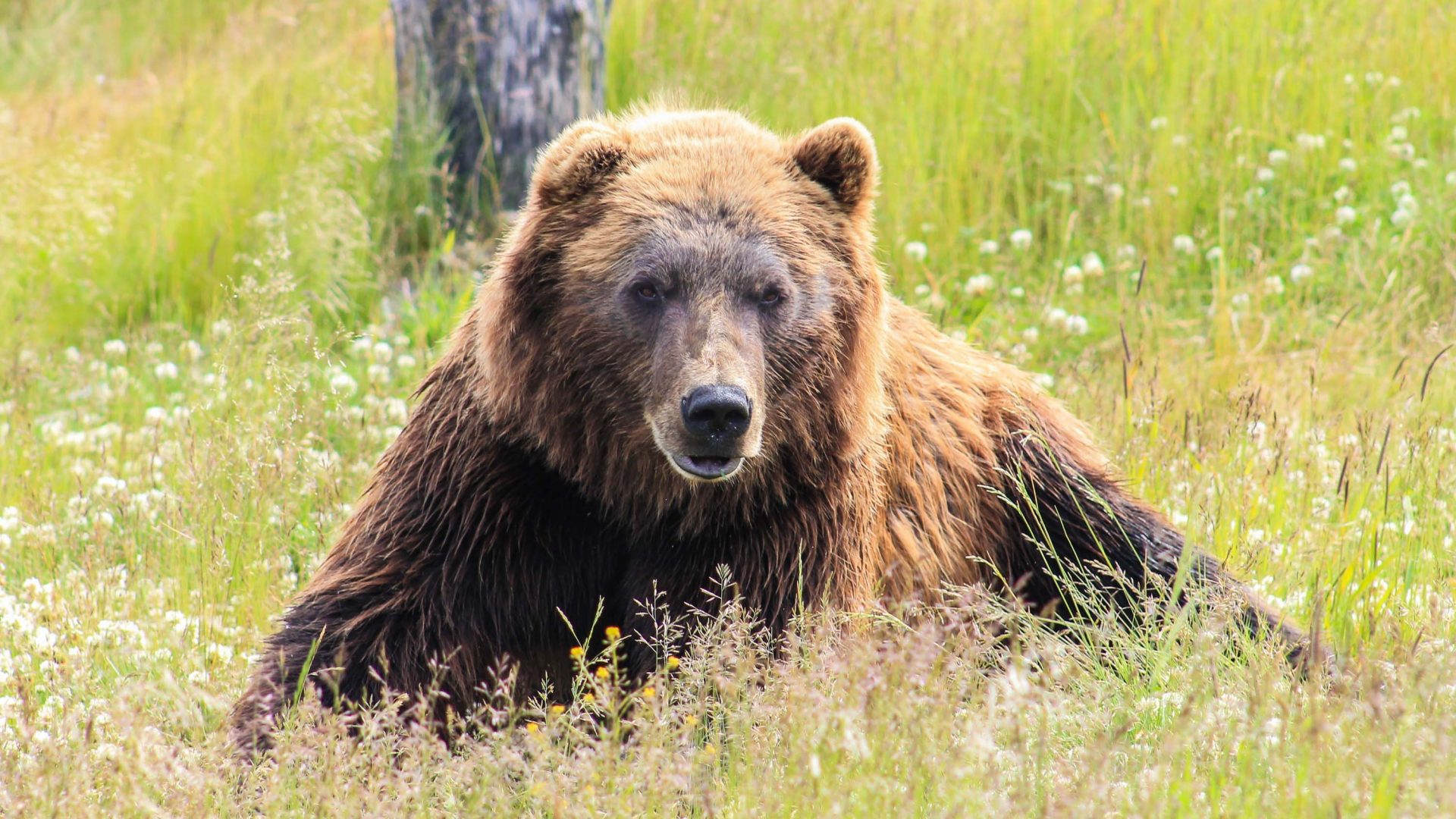
British Columbia’s remote Cariboo mountains are jam-packed with grizzly bears. Lizzie Pook checks into a new ‘glampsite’ which brings guests nose-to-nose with the creatures.

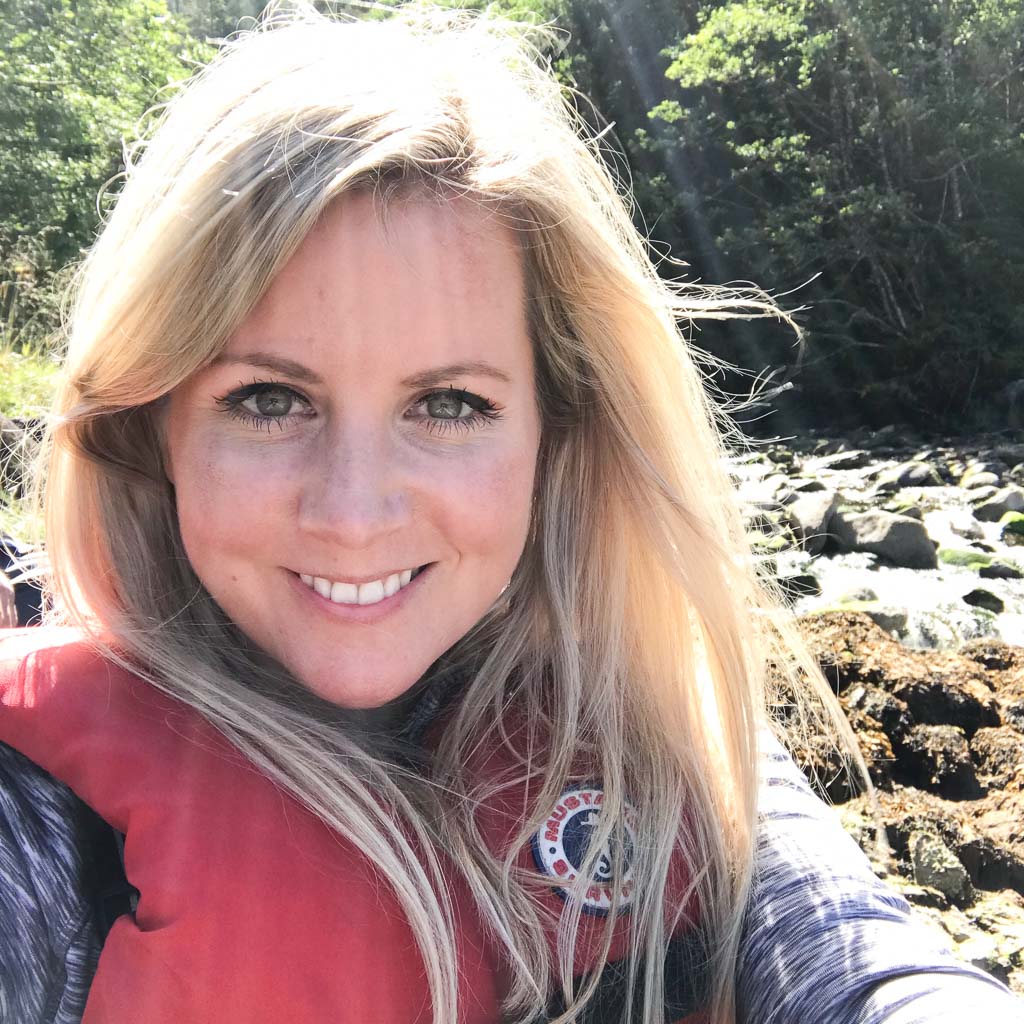
British Columbia’s remote Cariboo mountains are jam-packed with grizzly bears. Lizzie Pook checks into a new ‘glampsite’ which brings guests nose-to-nose with the creatures.
As Gary points the bow of the boat downstream, the storm-streaked valley opens up around us, mist clinging to its every ripple and crag. “There are a lot of animals stuffed into this valley, here,” he says, the words spiriting away on the wind that whips around us. “Some of them are easy to get along with, some of them not. We’ll come across aggressive animals, so just do what I say.”
A huge golden eagle swoops by, its wings silhouetted against the towering Douglas firs that peer down onto the river. Beavers slap their tails as we pass and the haunting screech of stellar jays fills the air.Suddenly, to our right, a crash, and I turn to see a huge grizzly launching itself into the river.
“That’s Homer,” Gary whispers, as the beast tears through the water in front of us, his almost-black body like a small ship motoring past. He emerges the other side, bedraggled, his size still mighty as he crashes off into the reeds.
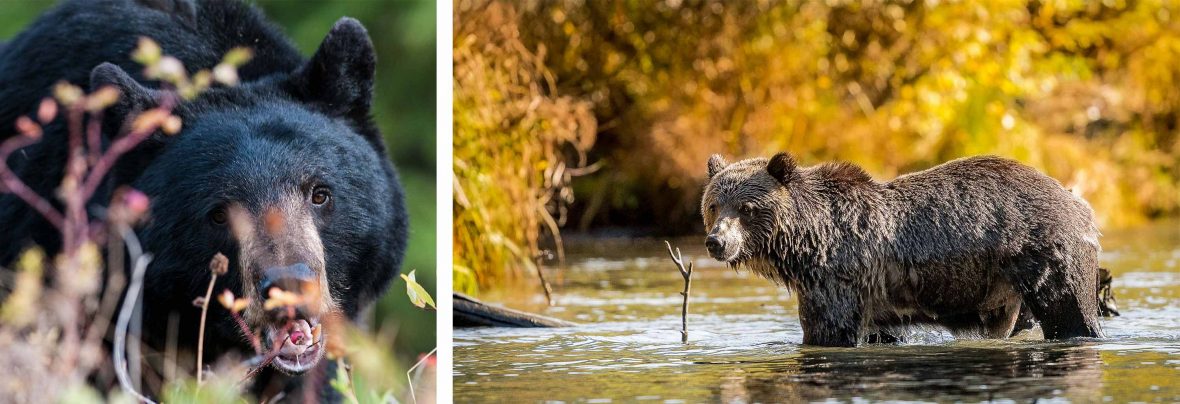
I’m deep in British Columbia’s remote Cariboo mountains, a true wilderness dominated by high serrated peaks, limestone bluffs, lush wetlands and dramatic ice fjords, which whip up biting temperatures and a driving rain that ploughs through these mist-bloated valleys.
Here, Gary and Peggy Zorn of Ecotours BC operate almost exclusively in an area the size of Switzerland, taking guests chest-deep in waders along grizzly-fringed river systems, through forests in search of lynx, wolf and moose and up into the mountains where cougars prey on scattered herds of mule deer.
RELATED: In search of the rare Ethiopian wolf on the rooftop of Africa
I’m one of the very first people to stay at their brand new venture, a floating glampsite (the first of its kind in Canada) that’s moored about 20 meters off-shore in Quesnel lake, considered the deepest fjord lake in the world.
It’s not fancy. Instead, the camp is small and comfortable with two smart safari style tents containing double beds and compost toilets. Soon, there’ll be an al fresco shower, a permanent cook’s station, two more tents and a place to shelter from the cold (and gaze at the northern lights that ripple across this vast sky).
Each day, I head out with Gary into the Mitchell River system, a place that is, quite literally, heaving with bears. He’s an ex-hunter-turned-wildlife guide and he’s been nicknamed ‘the bear whisperer’ on account of his special relationship with the Cariboo’s grizzlies.
“When we set up Ecotours BC, people laughed at me. They said it would never last. But I said, ‘This is the future,’ and look at where we are now.”
- Gary Zorn, Ecotours BC
Here, lichen hangs heavy and garland-like from centuries-old red cedars and dead trees grasp upwards from the riverbed like witchy fingers and desiccated rib cages. But it’s the smell that’s most arresting: A stench of rotting fish that wafts into the nostrils and lingers. Their bodies are scattered all about the place too, torn about by bears and left, partly-devoured across tree branches, on the banks of the river or even floating on the surface of the water, below which thousands of spawning salmon streak by in a sea of crimson red.
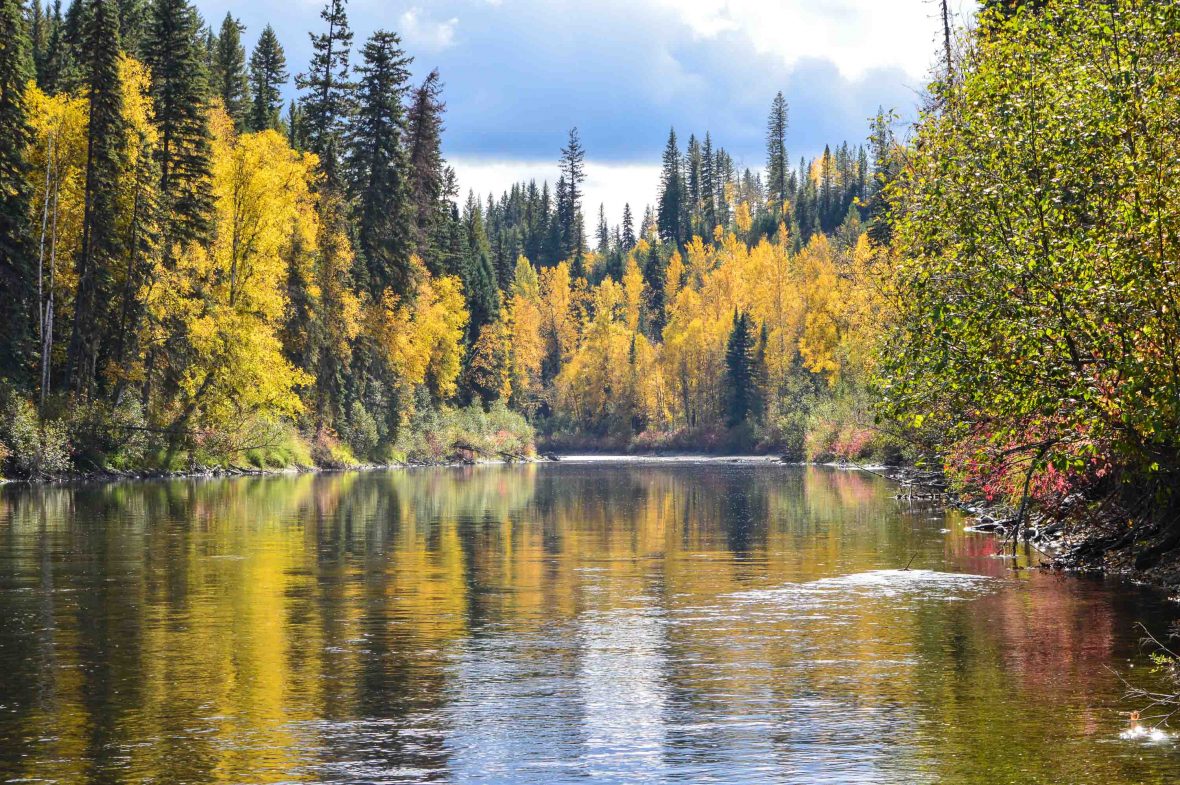
Gary hops into the water, waders almost up to his chin, and pulls the boat slowly and silently through the shoals. As we drift, I ask him why he decided to stop hunting.
“I began to hate the concept,” he says, picking his way around fish carcasses. “I hated the idea of trophy hunting lodges in America, that people would come to kill things rather than experience nature and be in the wild.
“When we set up Ecotours BC, people laughed at me,” he recalls. “They said it would never last. But I said, ‘This is the future,’ and look at where we are now.”
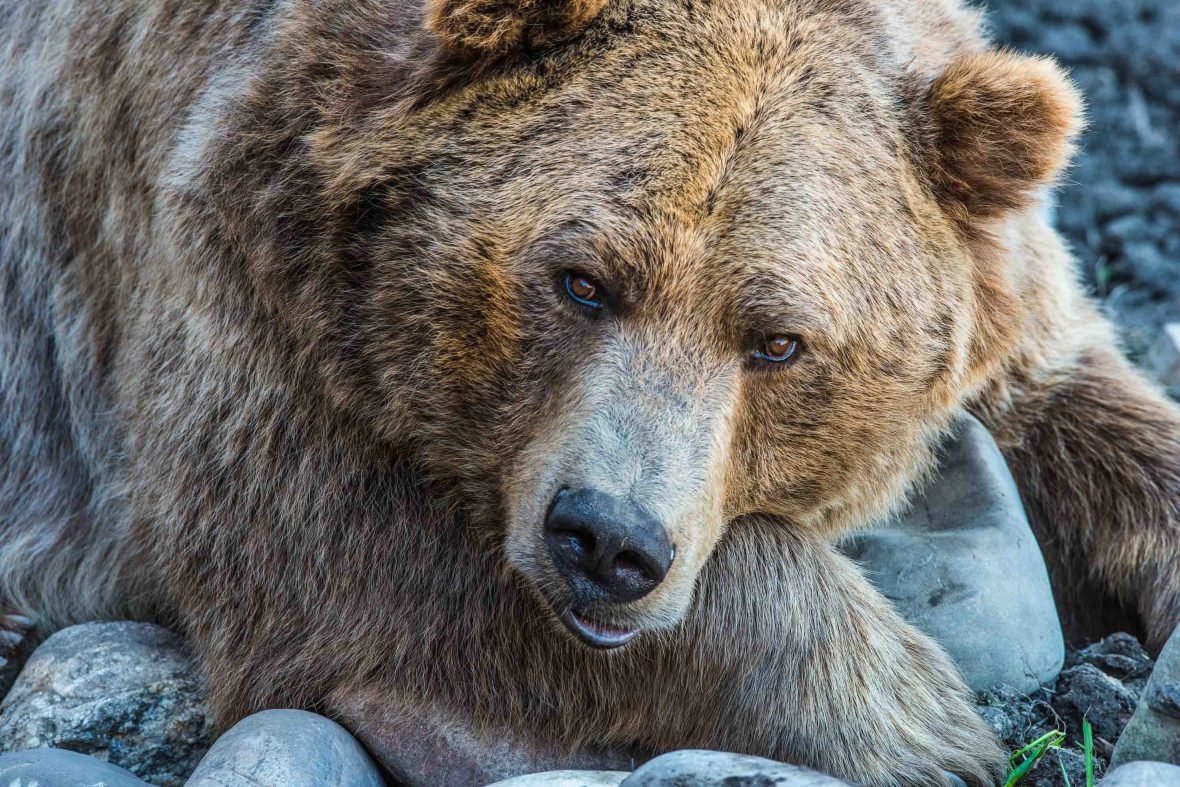
An estimated 25,000 grizzly bears live in Canada, about half which crash through the forests of British Columbia, and it’s a number that looks set to rise. A ban on trophy hunting was announced last August and now all non-First Nations grizzly bear hunting throughout the province is illegal.
“There are bears here that I’ve worked with for years, like old Hilda and big Homer. They’re like people. They have different personalities; some you can work around easily and others are a bit more difficult. You just have to be patient. You’ll soon learn how to deal with them.”
- Gary Zorn
“Warmer winters mean we’re not losing as many grizzlies to the cold as we have before either,” says Gary. “I’m positive we’ll start seeing even more bears crammed into this little pocket of land soon.”
As if on cue, we round a river bend to see a sow with two cubs fishing from the banks. We float silently, trying to conceal ourselves with overhanging foliage, before she catches wind of us and clatters off into the forest. From there, the sightings snowball.
As we meander further upstream we spot another sow with cubs, submerged in the water, feasting on a banquet of salmon. A few minutes later another mum and cub come into view, the sow barking a warning call at us as the cub scarpers up a lodgepole pine to get a better view of these strange creatures in their tin boat.
“It’s a zoo out here today!” says Gary, with a grin, and as we push on past the next bend, we’re greeted by a huge silver-tipped grizzly on his hind legs, a blood-red salmon wriggling wildly in his jaws.

Back at the glampsite, we warm ourselves with tea and fire up the grill. Gary is a man with epic stories to tell, from the companionship he once witnessed between a blind bear and a crow that would help him find food, to the time a bear swiped the binoculars straps clean off his chest. But what’s clear is that he cares for these animals as if they are his own children.
RELATED: British Columbia’s sockeye salmon run is bizarre, beautiful and bittersweet
“There are bears here that I’ve worked with for years, like old Hilda and big Homer,” he says, as we watch a black bear picking its way across the shoreline just meters in front of us. “They’re like people. They have different personalities; some you can work around easily and others are a bit more difficult. You just have to be patient. You’ll soon learn how to deal with them.”
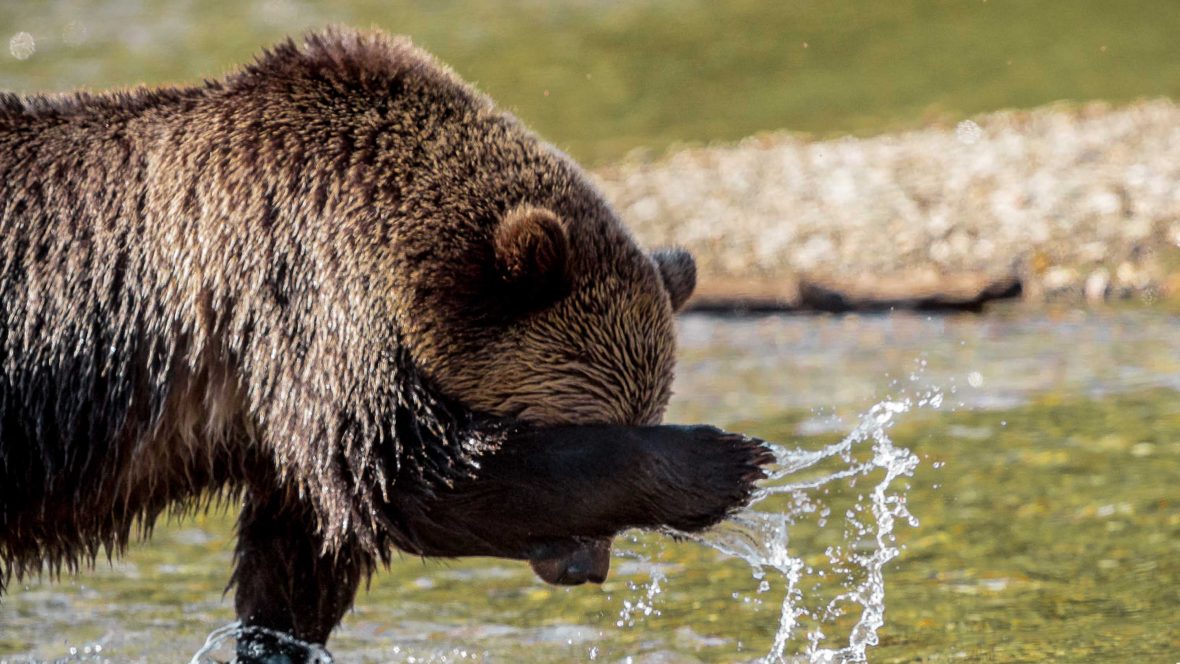
I ask him if he’s ever felt vulnerable out here. “Most angry bears are just bluffing,” Gary says. “They’ll hiss and jaw-pop and slobber, but they’re not going to attack you. However, if a bear stops what it’s doing, spreads his front legs, drops his head and looks at you through the tops of his eyes—he means business!”
“You can’t run away,” he adds. “He will catch you. Stand your ground. Holler at them and talk to them. We pack bear spray on all our excursions but I’ve never had to use it. I’ve always been able to diffuse the situation.”
Later, as I curl up in bed, a haunting sound fills the air around the tent, rising and falling like a chorus of ghosts. “Lizzie!” Gary whispers from next door. “It’s wolves, they’ve made a kill.” As I hear the whoop of sandhill cranes in the distance, I think about the privilege of spending the night at here, in a place few humans will ever get to visit.


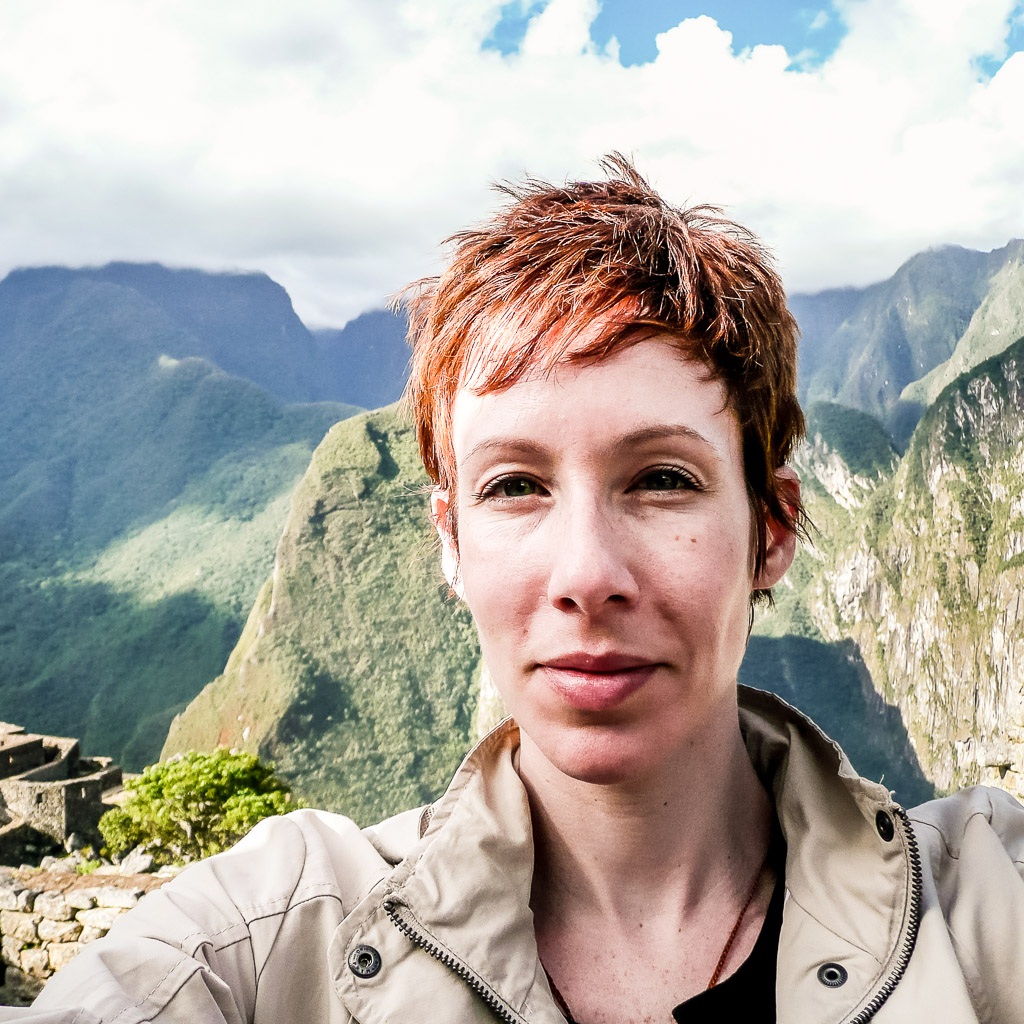


Can't find what you're looking for? Try using these tags: